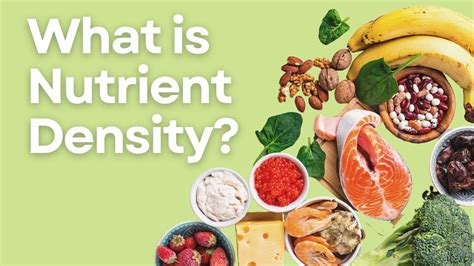How can men naturally boost testosterone for peak performance & vitality?

Testosterone, often hailed as the cornerstone of male health, plays a crucial role far beyond libido. It influences energy levels, muscle mass, bone density, mood, and cognitive function. While synthetic options exist, many men seek natural, sustainable ways to optimize their testosterone levels for enhanced performance and overall vitality. This article explores science-backed strategies you can implement to naturally boost your testosterone.
The Power of Nutrition
What you eat profoundly impacts hormone production. Focus on a balanced diet rich in whole foods.
Key Nutrients for Testosterone Synthesis:
- Zinc: Critical for testosterone production. Found in red meat, shellfish (especially oysters), legumes, nuts, and seeds.
- Vitamin D: More of a hormone than a vitamin, adequate Vitamin D levels are strongly linked to higher testosterone. Get it from sun exposure, fatty fish, and fortified foods.
- Healthy Fats: Cholesterol is a precursor to testosterone. Incorporate monounsaturated and polyunsaturated fats from avocados, olive oil, nuts, and fatty fish.
Foods to Embrace:
Leafy greens, cruciferous vegetables (broccoli, cauliflower), berries, lean proteins, and whole grains. These provide essential micronutrients and fiber, supporting overall hormonal balance.
Foods to Limit:
Processed foods, excessive sugar, trans fats, and excessive alcohol can disrupt hormonal balance and lead to inflammation, negatively impacting testosterone production.

Smart Exercise and Activity
Physical activity is a powerful testosterone booster, but the type and intensity matter.
Strength Training: Your Best Ally
Lifting weights, especially compound exercises like squats, deadlifts, bench presses, and overhead presses, triggers a significant hormonal response, including a surge in testosterone. Aim for 3-4 sessions per week, focusing on progressive overload.
High-Intensity Interval Training (HIIT):
Short bursts of intense exercise followed by brief recovery periods have also been shown to increase testosterone. This method is efficient and highly effective.
Avoid Overtraining:
While exercise is good, excessive or prolonged cardio without adequate recovery can elevate cortisol (stress hormone), which can suppress testosterone. Listen to your body and prioritize recovery.

Prioritize Quality Sleep
Sleep is not a luxury; it’s a fundamental biological necessity for hormone regulation.
Most of your testosterone is produced while you sleep, especially during deep REM cycles. Chronic sleep deprivation significantly reduces testosterone levels. Studies show that even a week of restricted sleep can drastically lower testosterone in young, healthy men.
Tips for Better Sleep:
- Aim for 7-9 hours of quality sleep per night.
- Maintain a consistent sleep schedule, even on weekends.
- Create a relaxing bedtime routine (e.g., warm bath, reading).
- Ensure your bedroom is dark, quiet, and cool.
- Limit screen time before bed due to blue light exposure.

Master Stress Management
Chronic stress is one of the most significant silent killers of testosterone.
When you’re stressed, your body releases cortisol. High and prolonged cortisol levels can directly inhibit testosterone production and utilization. Learning to manage stress is vital for hormonal balance.
Effective Stress-Reduction Techniques:
- Mindfulness and Meditation: Regular practice can lower cortisol and improve overall well-being.
- Deep Breathing Exercises: Simple techniques can quickly calm your nervous system.
- Engage in Hobbies: Activities you enjoy (sports, music, art) provide an outlet for stress and promote relaxation.
- Spend Time in Nature: Connecting with the outdoors has proven stress-reducing benefits.

Optimize Lifestyle Choices
Beyond the core pillars, several other lifestyle factors contribute to healthy testosterone levels.
Maintain a Healthy Weight:
Obesity, especially excess abdominal fat, is strongly linked to lower testosterone. Fat cells contain an enzyme called aromatase, which converts testosterone into estrogen. Losing weight can significantly improve testosterone levels.
Moderate Alcohol Consumption:
Excessive alcohol intake can disrupt the endocrine system, impairing testicular function and lowering testosterone. Moderate consumption is generally considered acceptable, but heavy drinking should be avoided.
Avoid Endocrine Disruptors:
Certain chemicals found in plastics (BPA, phthalates), pesticides, and personal care products can mimic or block hormones, negatively impacting testosterone. Opt for natural alternatives and minimize exposure where possible.

Conclusion: A Holistic Approach
Naturally boosting testosterone for peak performance and vitality is not about a single magic bullet; it’s about adopting a holistic approach to your health. By consistently focusing on a nutrient-rich diet, effective exercise, adequate sleep, stress reduction, and mindful lifestyle choices, men can significantly optimize their testosterone levels. These natural strategies not only promote higher testosterone but also contribute to overall well-being, leading to improved energy, mood, muscle mass, and a zest for life. Consult with a healthcare professional before making significant lifestyle changes, especially if you have underlying health conditions.









